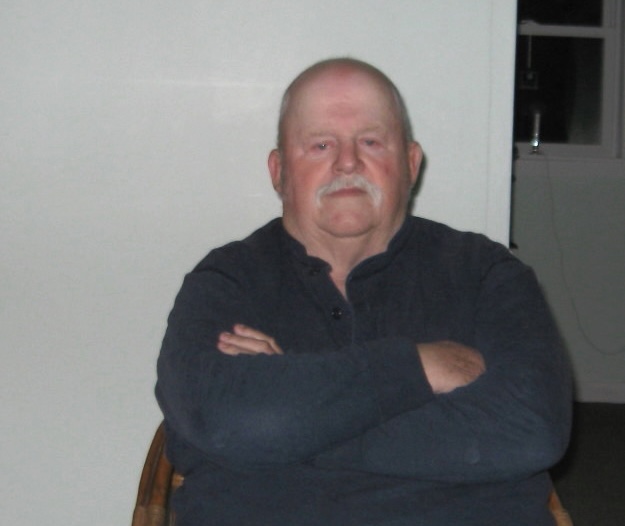Proud to serve his country; would do it all over again
by Roberta Barnes
It was before Veterans Day, but hearing a cashier say, thank you for your service, to the man ahead of me at the grocery store, made me smile. Since the war that resulted in forming the United States of America, people have had opinions on what would, could, should have happened if . . .
On Veterans Day we focus on the men and women who served in our Armed Forces and say thank you to them. What school you attend, what job you take, and what you do each day is your choice, even if it is a bad choice. Sometimes we forget that our way of life that allows us to make those choices is because of those men and women who served in one of the five branches of the U.S. military we know well, or the sixth branch signed into law in 2019. Military veterans, and those serving today, joined in the branch of his or her choice for various reasons, and they include varying ages, races, religions, educations, experience, and occupations.
What an U.S. Army veteran told me a few days ago sums up the attitude of military veterans regardless of rank, or the branch in the U.S. armed forces in which he or she served, “I am proud of being a Veteran.” Army Platoon Staff Sergeant Wayne Trask also added, “I would do it again,” even though he had just told me he was first shot in a fire fight in 1968.
We see movies about men being surrounded and then the cavalry comes riding in on their horses to the rescue. While military trained dogs and their military handlers are sometimes used, horses have been retired. In June 1965, the U.S. Army formed the Air Calvary, with helicopters being used in Vietnam. Staff Sergeant Trask was responsible for 50 men in a platoon in the First Air Calvary.
SSG Trask was called chainsaw because when trees were preventing a helicopter from landing where was needed, he acquired a chainsaw and cut down the trees. He gained his skill with a chainsaw as well as his excellent marksmanship with a rifle in the Maine woods.
Staff Sergeant Trask’s time in the military began with two 8-week bootcamps, plus two weeks of learning to identify weapons such as the sound of an AK47. He had been drafted, but after his two years he extended his time in the army. SSG Trask was discharged in his third year because of the severity in which he had been shot the third time. During his years in the U.S. Army, he also received shrapnel from a booby trap another soldier accidentally triggered.
Before returning to Maine, SSG Trask spent time in an Army hospital in Massachusetts, where he said he received excellent care. He was able to return to his employment at ironworks Cives Steel, in Maine, where he worked for a total of for 37 years, even though after returning from serving in Vietnam his injuries presented him with daily challenges. It was another 20 years before he received health benefits from the U.S. military.
Fifteen years after SSG Trask returned to civilian life in Maine he received for his service in Vietnam and such places as Cambodia, the silver star, the bronze star, three purple hearts, and an Army commendation metal.
I asked Staff Sergeant Trask how it felt being a young man from Maine sent to a foreign country over 8,000 miles away where his life could end at any moment. His reply was that he was there to do his job. His awareness was not just for his job, as he explained the beauty he saw in parts of the country in Vietnam. It is our job to say thank you to all our military veterans who came home and those who did not.
Often when our U.S. military veterans blend into civilian life they still help others in diverse ways. I, like many people in this country, experienced a time when I seriously needed help, and it was a U.S. military veteran who stopped what he was doing and helped me. That veteran told me a few years later that he simply did what he had been taught in the military to do when he found someone in my position.
A sincere thank you to all our U.S. military veterans who have served over the years at home and abroad.
Responsible journalism is hard work!
It is also expensive!
If you enjoy reading The Town Line and the good news we bring you each week, would you consider a donation to help us continue the work we’re doing?
The Town Line is a 501(c)(3) nonprofit private foundation, and all donations are tax deductible under the Internal Revenue Service code.
To help, please visit our online donation page or mail a check payable to The Town Line, PO Box 89, South China, ME 04358. Your contribution is appreciated!



Leave a Reply
Want to join the discussion?Feel free to contribute!